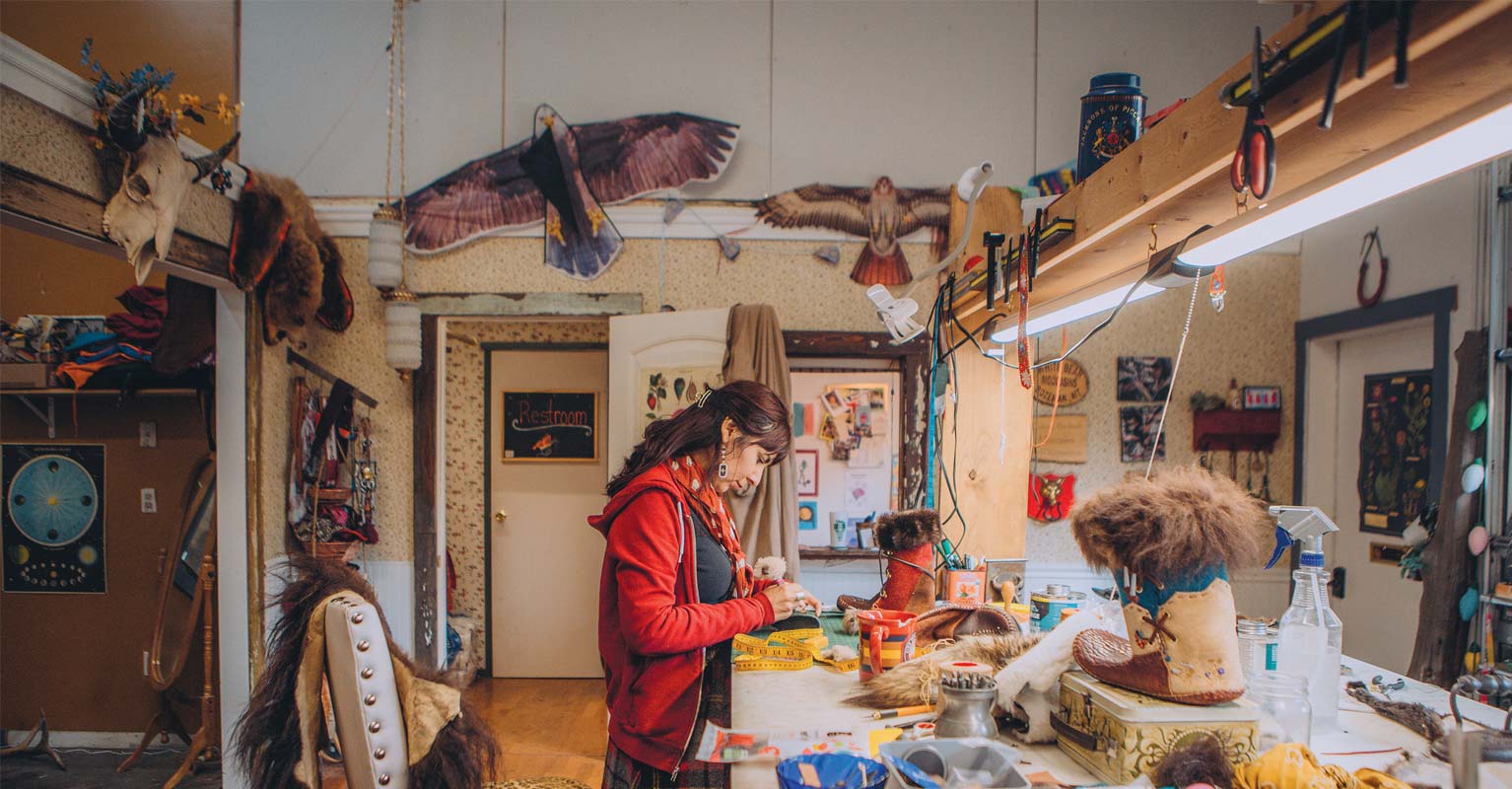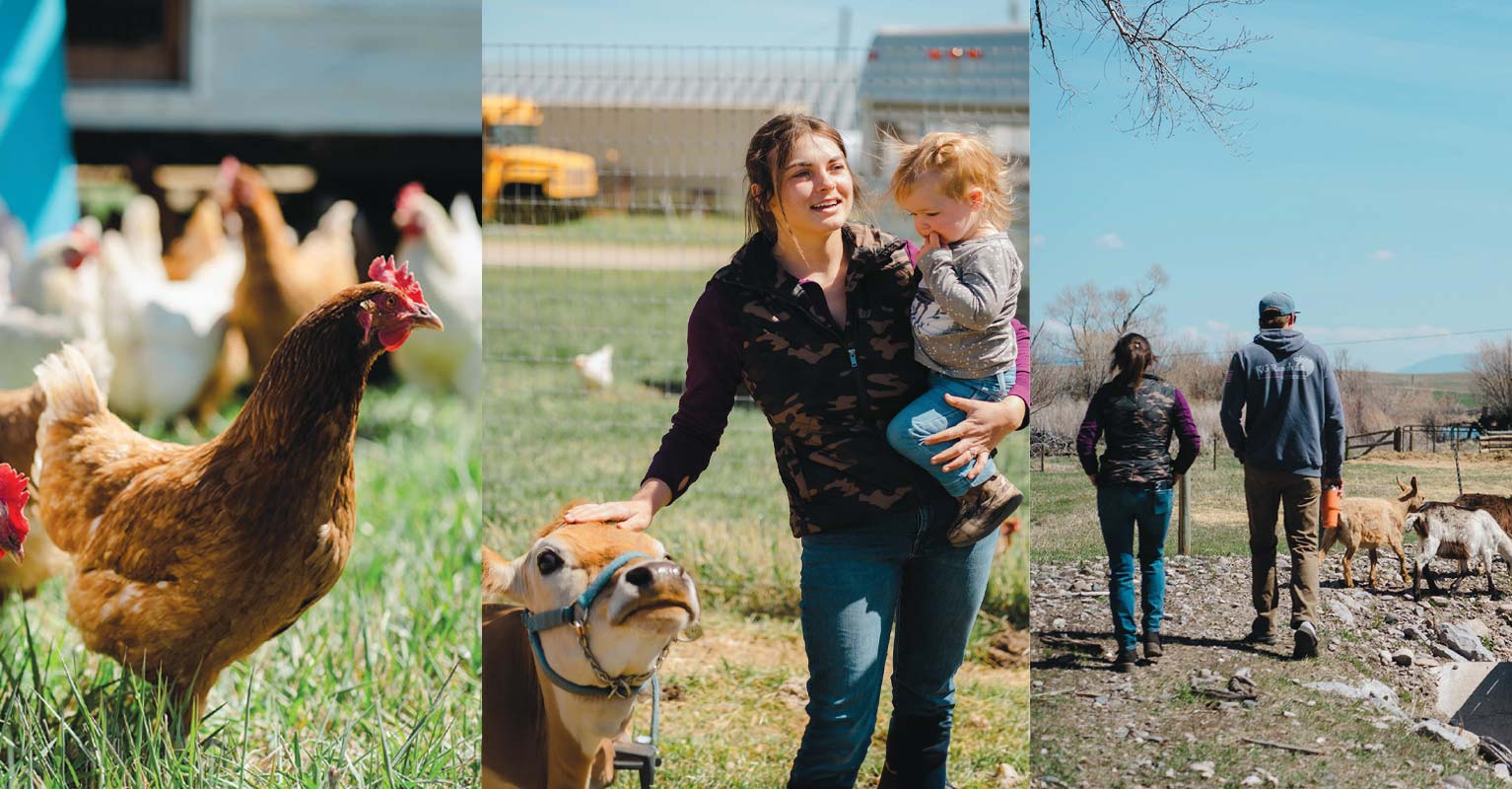Selling Healthy Flour
One thousand pounds of grain. That’s the capacity of Judy Cornell’s future grain mixer, which she’ll add to her milling lineup to create flour blends like Big Sky Rye or her Bucking the Sun Pizza Dough. Cornell is owner of Conservation Grains, a flour company based out of Choteau that mills whole-grain, stone-ground flours. Cornell plans to purchase the thousand-pound-capacity grain mixer after receiving a grant through the new Montana Agriculture Adaptability Program, which arose out of the COVID-19 pandemic.
Originally from New Jersey, Cornell moved to Whitefish in the 1970s and purchased a second home in Choteau with her husband in 2001. Seven years later the Cornells purchased irrigated farmland near their Rocky Mountain Front home. They moved there full time in 2015 and have been crafting flour blends ever since. Cornell encourages people to expand their whole-grain repertoire and seek more than just the typical fluff y white flour.
Edible Bozeman: How does soil health and conservation tie in to making flour? I’m curious to hear more about the philosophy behind your business and its name.
Judy Cornell: I started to think a lot more about how we were farming our ground, which was pretty conventional. One winter I sat down and took all the soil samples from our farm that had been done year in and year out, charted it, and saw that the soil organic matter was declining, and the soil pH was rising. I realized you can view that soil as a bank account, and we were just drawing down the bank account and not making any deposits.
The philosophy is to care for the soil biology, so I now think of our farming in terms of how can I grow the soil. If you are raising crops in soil that is not functioning, you don’t get nutritional food from that ground. It may be somewhat nutritional, but it’s not what it could and should be.
EB: Where do you source your grains?
JC: I source from Wheat Montana, Montana Flour and Grains, and individual farmers, but each one is kind of a project to pull off . Sourcing the grains is tricky. I bought some spelt from Casey Bailey out of Fort Benton, but it takes special equipment to dehull. It’s very hard to get small quantities of grain—“small” being a couple thousand pounds— cleaned. Everything in Montana agriculture is set up for big. I’m talking tens of thousands of pounds.
EB: On your website you mention that whole-wheat flours are oft en reconstructed from white flour, a process that loses the germ and a lot of the grain’s nutrients. How does someone know if the flour they’re buying has all the nutrients they want?
JC: Look to see if it’s [labeled] “enriched.” If it is, then [the processors] have stripped some of the natural nutrients in the process of milling and sifting. You don’t have the whole goodness of that kernel of wheat that nature provided. So many people think bread makes them fat. They’re right if they’re eating predominantly white-flour bread, whereas whole-wheat makes for a very happy digestive system. When you have a healthy biology inside you, then your body, in so many ways, is healthier.
Conservation Grains’ fresh products are available via mail order or Bozeman’s Farm Cart Foods. At conservationgrains.com you’ll find options including how to order custom flour blends.




